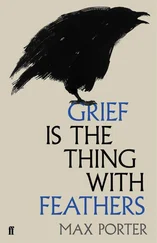They started their tour, Maci walking carefully along planks that ran across the sucking mud, but giving up in seconds on ever rehabilitating her dress. Mr. Farrington explained how there were five other chambers like this one. “We are seventy feet below the river surface,” he said. “And even now, as the men clear away more rock and mud, we are descending ever deeper.” When they came to a wall he pointed at the boilerplate that covered the whole interior and told how it had been installed as a precaution against fire, which had nearly destroyed the caisson on the other side of the river.
“Fascinating!” Maci said, but she wanted to leave, and she wished the tour would end. She had gathered all the information she needed in the first moments, and she felt confident that she could convey to the readers of the Weekly a sense of the hot, close horror of the place. Mr. Farrington was called away. He left them standing under a blinding calcium light.
“Do you like it down here?” Dr. Woodhull asked her.
“It’s charming,” she said. Then she cried out because she got a pain in her ears as if someone had poked them each with an awl, and the pain distracted her from the great blast of air that almost knocked her into the mud. The lights were all extinguished. The workmen were groaning and cursing. She heard Mr. Farrington shouting for them to mind their language for the sake of the lady journalist.
“It’s just a blowout,” said Dr. Woodhull, explaining how the edge of the caisson, because it hadn’t sunk far enough into the ground, was prone to lift a little as the tide shifted, sending a burst of air out into the river. “The lights will be out momentarily,” he said. “But all’s well.”
“No,” she said. “No, I think that all’s less than well.” They were knee deep in water so cold it hurt her bones, and she was sure the water was rising. “I think we are going to die.”
“Nonsense,” he said. “You will never die, Miss Trufant.” Her eyes were opened as wide as they’d ever been in her whole life. They were opened so wide they were burning and tearing, so she thought she should have seen him coming closer to her. But she didn’t know he was there until he’d already pressed his lips against hers. What was he doing? Was she one of those Portuguese ladies who when left alone with a man are mortally offended if he does not at least try to be grossly familiar with their person? The thought flashed in her mind that she should scream and push him away. Bright as lightning, it flashed in her eyes, but it passed in an instant, and then the darkness, which somehow was sweet now, returned. Maci grabbed at his lips with her own. Grab grab grab, she thought. Gob Gob Gob. She knocked a tooth against his.
We are motivated strictly by love or by fear, and it is better to go the way that love pushes you, than the other way. I think I climbed off the earth on that thought, the way the pious dying climb off on a prayer. You, with your rich vocabulary of motivation, will find this a silly, simple idea. But isn’t it rightly said of the dead, that they are wise? I’ll give you this advice, and plead with you to accept it: let him enter you and obsess you, as I have entered and obsessed you.
“Spiritualists are all so serious,” Maci said to Gob, as they took another turn on top of the Distributing Reservoir. “There are trance-speakers, trance-healers, trance-levitators. But why are there no trance-comedians?”
“There’s no humor in death,” Gob said.
“Isn’t there? I giggled at my mother’s funeral. To any observer it seemed a sob, but I know what it was. Hideous, perverse giggling, because my mother died of bean-love. I thought of them spilling from her mouth even as she lay in her coffin, and I felt I’d have to laugh, or else die myself right there.”
“A terrible story, Miss Maci.”
“Yes. But don’t you believe, Dr. Gob, that a person ought to be able to laugh at death? I think that’s how we bring him down.”
“Did your mother come out of her grave, when you laughed at her?”
“Of course she didn’t. You deliberately misunderstand me.”
“I understand you very well,” he said, slipping his arm into hers. An urge to pull away flailed and died in her, then she leaned against him.
“What a ridiculous assertion,” she said, though just that morning she’d stood in her room with all the curtains flung open, and the lights turned up to a blaze, looking in the mirror and examining herself in the flood of light. She turned her head and brought her eye almost close enough to touch the glass, peering into her own pupil because she was sure that if only her vision could penetrate through the tiny black hole, she’d see him there, sitting comfortably inside her head. “Get out,” she’d whispered. They’d shared one deep breath — in and out — down in the caisson, and Maci was sure he’d put something in her, a part of himself that inspired in her a relentless desire to be near him. She liked to think that another woman had come out of the air-lock that day, one who hurried out before she could get kissed, one who went on without need of this strange person, who went on with a life not afflicted anymore with ghosts and rebel hands and machines. Every day that passed after the kiss, Maci made sure to set aside a little time to be happy for that girl.
“There is a secret world, Miss Maci,” Gob Woodhull said, taking her to lean over the edge of the water. “Hidden in plain view of this one, it is invisible to people who truly believe that hurling giggles at death will ameliorate mortality. It is full of grieving people and grieving spirits. See? Here are two citizens of that world.” He nodded his head at their reflections.
Maci disengaged herself from his arm and stepped back from the water. “Morbid fancy,” she said.
“Look here, I have something for you.” He took off his hat and reached into it, bringing up an ordinary flower, a humble daisy, mashed and sweaty from being under his hat. He held it out for her. She took it with her right hand.
“Thank you,” she said, and put it to her nose. It smelled of his hair.
Do you remember playing Troy? I was Helen bound up with our mother’s scarves, high on their bed, which we’d pushed into the middle of their room. You had to be Achilles, splendid in your fury, dragging the cat around the bed by a string, and calling it dead Hector. Such a cruel game; only children could play it. Around and around you went, deaf to the protests of the cat. I had to shout for you to hear me. I wanted to be released. “Let me go,” I pleaded. “I’m uncomfortable.” “Wretched creature,” you shouted, never slowing, “there is no comfort in this world!” You were five years old. I was ten.
Now, any spirit will grant that the comforts of mortality are small and fleeting, but that is no reason to spurn them. Sister, I urge you to take a portion of happiness for yourself.
Maci confided to the senior Dr. Woodhull that she believed herself to be the victim of some infective illness. “There was an invading process,” she told him, describing her symptoms, “and now there is a dissolving process.” Dissolving was not actually the appropriate term. Whatever had been put in her with the kiss had exploded, and shattered her into a confused, fractious being. Wasn’t that the function of time, to keep you from being more than a single person at once? But Maci was at present a crowd of contrary opinion and in-decisiveness.
“I have just the thing for you,” said Canning Woodhull. He left the kitchen to go to his room, and came back in a moment bearing a lovely yellow bottle marked with painted flowers and eyes. “Believe me,” he said, “this will help you.” It only made her drunk.
If Maci had learned anything, living in Mrs. Woodhull’s house, she had certainly learned that marriage was not an exalted state, or even a necessary one. A husband could be merely a courteous appendage, like Colonel Blood, or, like Canning Woodhull, a broken thing deserving of heaped charity. So why did Maci wake one morning convinced that marriage was the only remedy for love, and why did she wake one morning believing herself in love with Gob Woodhull? She did not believe these things — it was the others who did. The rebellious other Maci Trufants who jostled inside of her, who staged a coup and overthrew her reason.
Читать дальше












